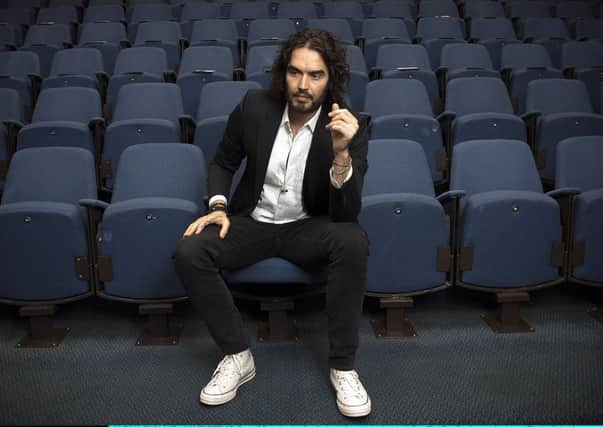Duncan McEwan: Russell Brand wrong about young voters


This staggeringly poor figure puts Britain well behind our European counterparts. A recent YouGov poll stated that 42% of young people support Brand, compared to only 13% of those over 50. Although the London-based comedian lacks the majority of youth support, his ‘revolution’ movement has attracted considerable curiosity. By taking advantage of ably-choreographed appearances on Newsnight and social media sites such as Youtube and Twitter, Brand has acquired political stardom. The endless media attention he has received is a product of his genuine commitment, wit, charisma and celebrity status. However, these qualities also give rise to far-fetched and generalised statements, lacking in both detail and factual clarity.
Revolution
Brand has called for a ‘revolution’, a wave of protest to sweep through British politics. A need for change is also recognised within the establishment. Former Minister for Civil Society Nick Hurd has pointed out that ‘the priorities of the old’ must no longer dominate British politics. But the priorities of the older generation are not the sole problem.
CONNECT WITH THE SCOTSMAN
Advertisement
Hide AdAdvertisement
Hide Ad• Subscribe to our daily newsletter (requires registration) and get the latest news, sport and business headlines delivered to your inbox every morning
Politics is seen by many youngsters as inherently boring, while politicians are viewed as fraudsters, liars and ‘economic elites’. Shadow Commons Leader, Angela Eagle, when asked about Brand’s sweeping statements, said: ‘You can’t change anything by sitting on the sidelines; you have to be part of the process’. Plenty of young people clearly agree and make sure they aren’t sidelined, disproving Brand’s proclamations of an uninterested generation. There is an increasing involvement in pressure groups, an important part of the political process. Amnesty International has more than 500 youth groups active in schools across the UK. Such activity is not restricted to mainstream politics - the RSPB, have 195,000 young members, 5,000 more than Labour’s total membership. Whether or not Russell Brand does speak for significant numbers of people, his refusal to vote, like that of many others, will do nothing but damage democracy and national progress. A ‘revolution’ or shake up of the British political system is unlikely. Refusing to vote makes change even less likely and keeps in power those so publicly criticised by Brand. Poor voter turnout suggests a growing dissatisfaction and disillusion with politics that is damaging our democracy, but Brand needs to understand this; the general election remains, for the foreseeable future, the obvious platform for change and public accountability.
‘We’ve got to communicate more often with young people’ - Speaker John Bercow
When listening to Russell Brand, one must consider whether one can achieve democratic satisfaction without a formal voice? Speaker John Bercow has previously addressed the issue by asking young people whether they are interested in ’…the job they are going to get, the house they are going to own, the health care they are able to access’. Bercow also makes a clear distinction between political interest and party political engagement: if young people are interested in their future ‘then they really are interested in politics, even if they aren’t interested in party politics.’ A lack of interest in party politics is far more common than general apathy regarding one’s situation in society, however, this does not excuse a refusal to vote. If distrust is the problem, isolation is not the solution. The solution has to be a two-way process, if there are voters interested in politics then the parties will have to show interest in the voters. The electorate has repeatedly called for parties to show this interest by delivering honest policies, transparent structures and determined leaders, and, as many politicians are beginning to realise, communicating with the electorate, whatever the age, is extremely important. Pensioners, an unlikely group of radical political activists, get huge attention from politicians because they vote. However, Brand encourages young people to give up the rights their ancestors fought for.
Votes
Russell Brand does, for me, preach from the wrong pulpit. Encouraging youngsters not to vote is extremely counterproductive, as reforming parliaments and assemblies requires more votes, not less. His ‘revolutionary’ call not only damages democracy but hurts many young and poor people across Britain who are in desperate need of support. Despite this, simply ignoring Russell Brand would be slightly hypocritical, as we do after all live in a democracy. Russell’s Revolution, or ‘Reloveution’, will never be a reality, but Scottish referendum voters have created a more ‘revolutionary’ atmosphere by championing political participation and paving the way for change.
• Duncan McEwan is a school student who lives in Edinburgh
SCOTSMAN TABLET AND IPHONE APPS